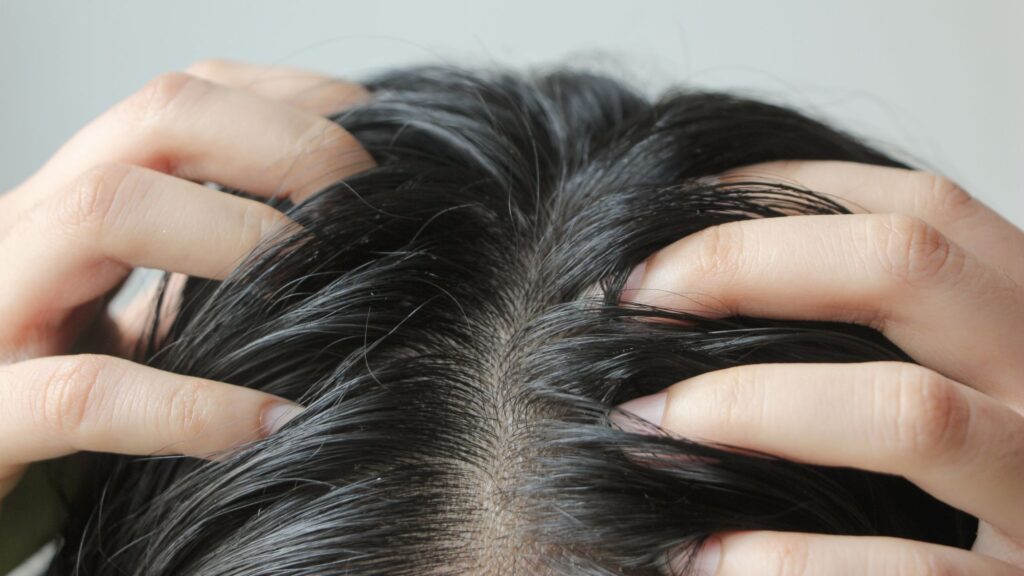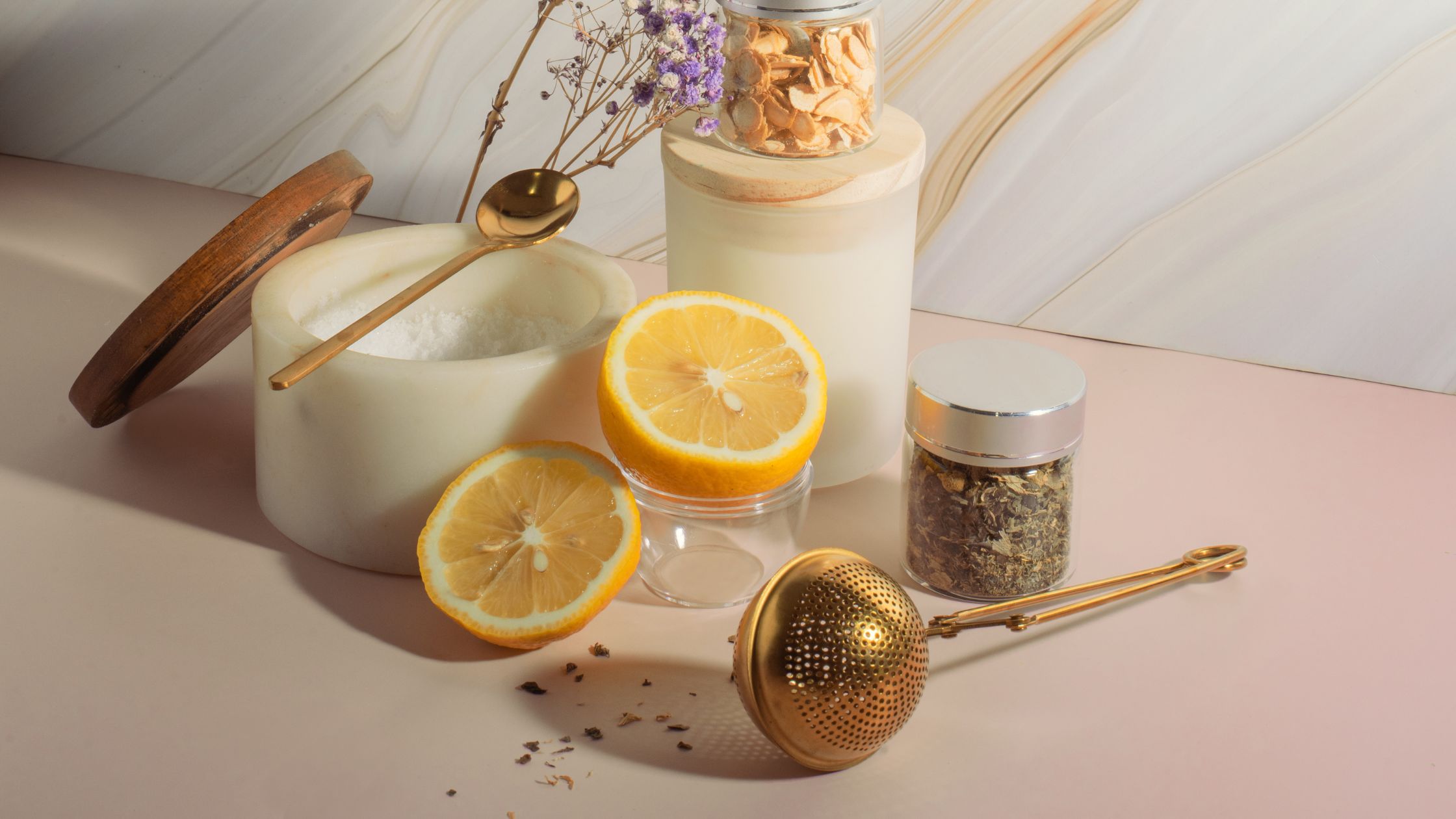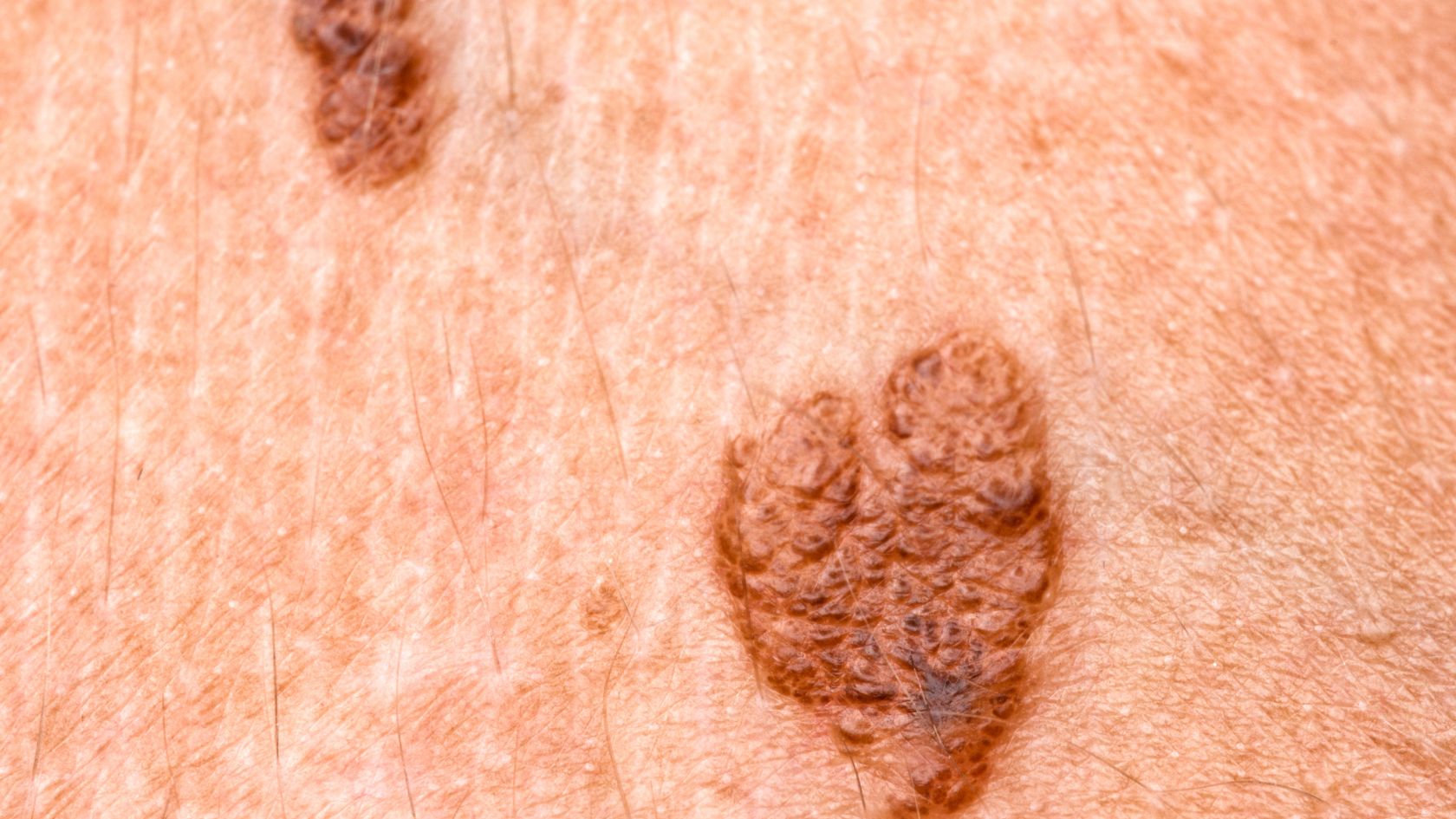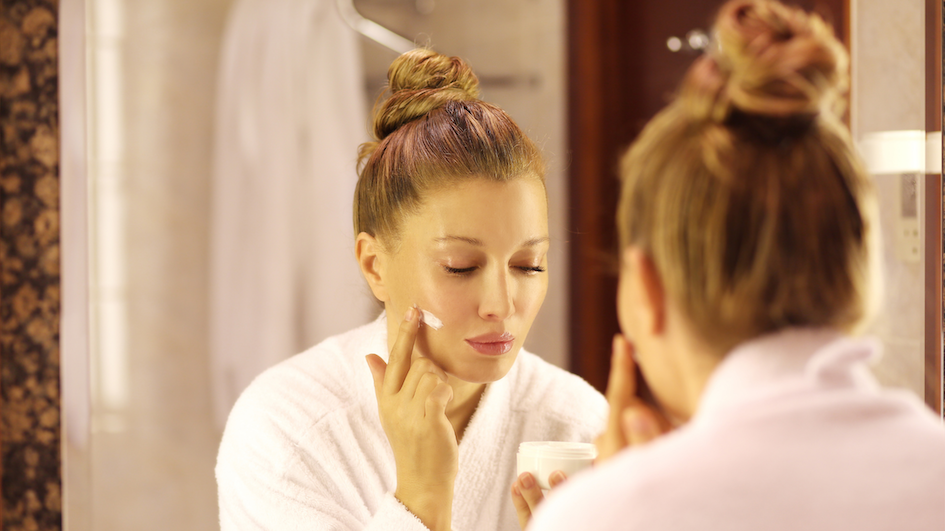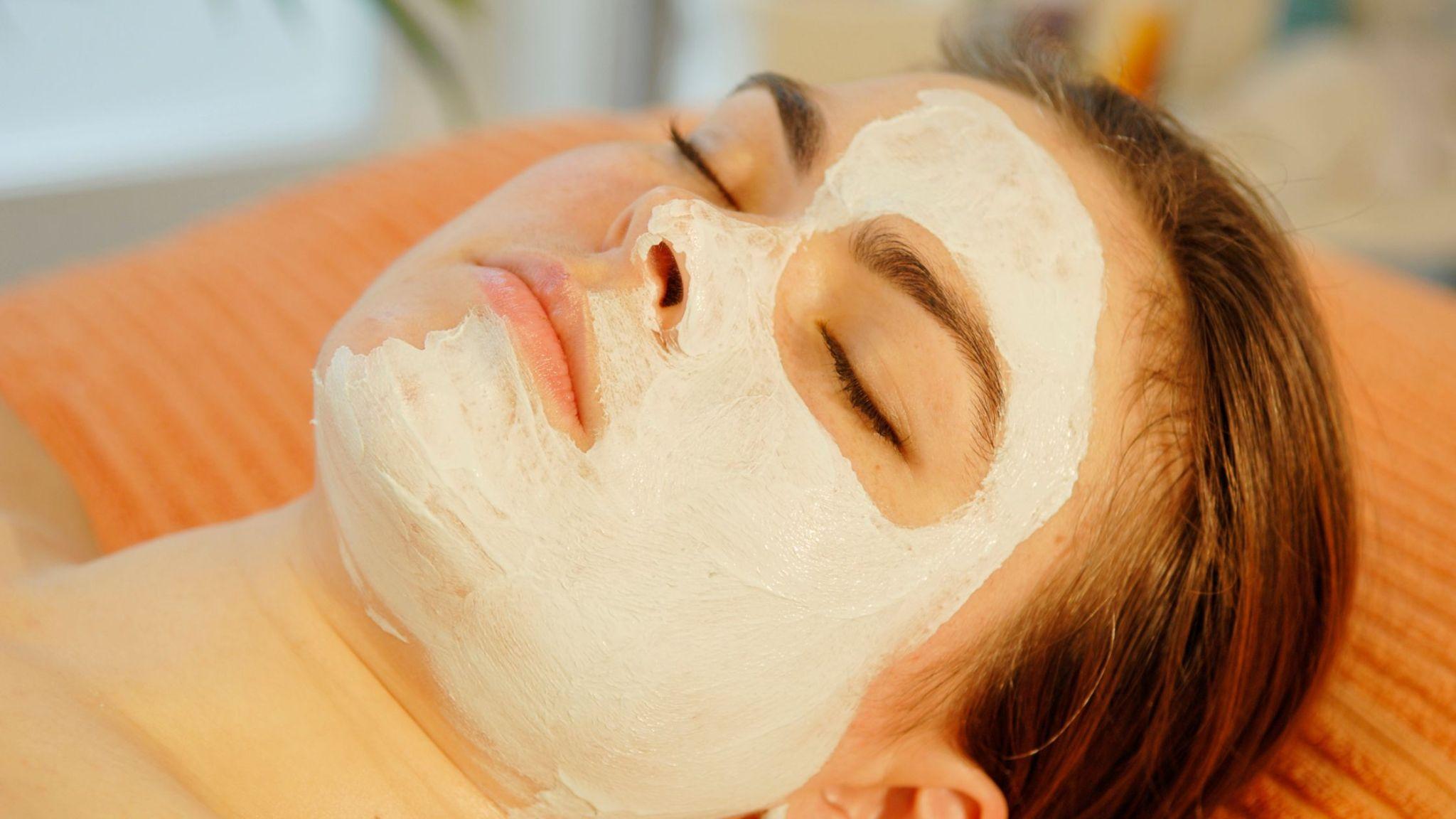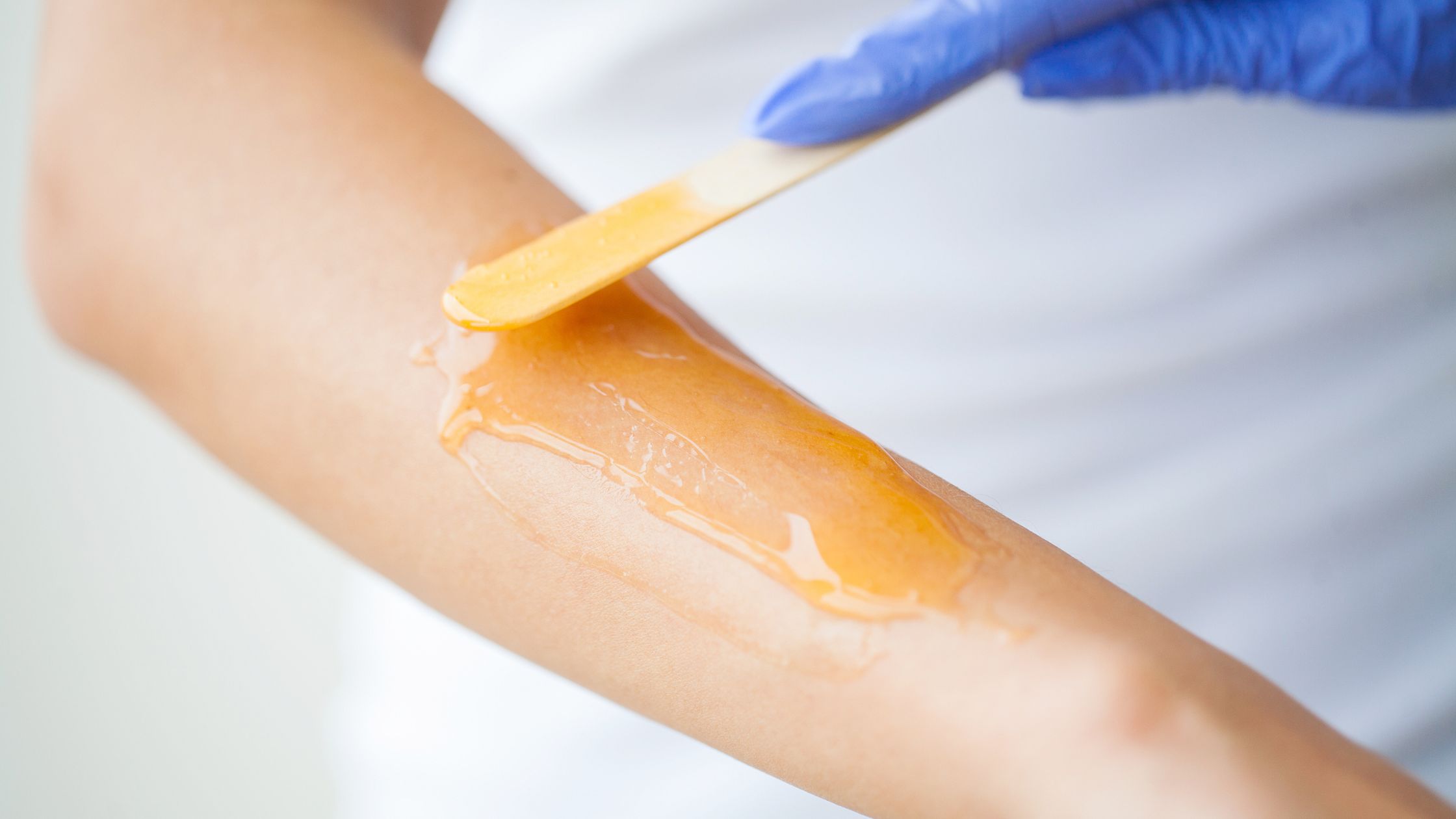Common causes of itchy scalp
Here are some conditions that could make your scalp itchy:
- Dandruff: A dry and itchy scalp with visible flakes on hair or clothing could indicate dandruff, which is one of the most common reasons for an itchy scalp.
- Reaction to haircare products: Itchy, dry, and flaky scalp could also result from inadequate rinsing of shampoo, which often causes irritation. Allergic contact dermatitis, a common condition due to wrong hair care products such as hair dyes, could also result in itchy scalp.
- Hives: Red, raised, and extremely itchy bumps, known as hives, can appear anywhere on the skin, including the scalp. Chronic hives last longer than six weeks.
- Head lice: The most common symptom of head lice is an itchy scalp. Close examination by your dermatologist can reveal signs of these tiny bugs.
- Scabies: Caused by human itch mites, scabies can make the scalp intensely itchy.
- Scalp ringworm: It is an infection caused by a fungus that often results in a red and intensely itchy rash.
- Scalp psoriasis: Some people with scalp psoriasis may experience flare-ups on the scalp. This is in the form of reddish patches, dandruff-like flaking, and varying levels of itchiness.
- Atopic dermatitis: This type of eczema can develop on the scalp, leading to redness, scaling, burning sensations, and persistent itching.
Treatment for itchy scalp
Here are some different treatment options for an itchy scalp:
Oil-Based Home Remedies
- Coconut oil: Coconut oil possesses potential antifungal and antibacterial properties that may alleviate an itchy scalp. With nearly half of its fat content comprising lauric acid, a saturated fat known for enhancing skin absorption, coconut oil serves as a soothing remedy for scalp discomfort.
- Peppermint oil: The application of peppermint oil twice a day over a two-week period can alleviate symptoms of itchiness. During application, dilute the oil with water or with another oil like olive oil and massage it into the scalp before shampooing.
- Tea tree oil: Tea tree oil, known for its antimicrobial and anti-inflammatory properties, can be beneficial for an itchy scalp. However, it is advisable to use it sparingly or dilute it before application. One approach is to incorporate 10-20 drops of tea tree oil into a mild shampoo or blend it with olive oil, then gently massage it onto the scalp.
Shampoo-Based Home Remedies
- Zinc Pyrithione Shampoo: This shampoo is readily available over-the-counter and is designed for addressing skin conditions like psoriasis and seborrheic dermatitis. The frequency of shampooing depends on your specific condition, with some individuals benefiting from daily use for optimal itch relief, while others may find daily washing too drying for the scalp.
- Salicylic Acid Shampoo: Salicylic acid, a beta hydroxy acid found in evergreen leaves and white willow tree bark, possesses anti-inflammatory, antibacterial, and antipruritic properties that can be beneficial for alleviating symptoms of an itchy scalp. Individuals with an aspirin allergy or sensitivity to salicylic acid should avoid its use.
- Ketoconazole Shampoo: Ketoconazole, a broad-spectrum antifungal agent effective against yeast infections, is available in the form of shampoos. These shampoos typically reduce symptoms within 2-3 weeks and should be used once or twice a week to prevent the recurrence of scalp conditions like dandruff. Consultation with a dermatologist is recommended before incorporating ketoconazole shampoos, as they may cause skin sensitivity.
- Selenium Sulfide Shampoo: Selenium sulfide, an anti-infective medication, aids in treating seborrheic dermatitis by slowing down yeast growth on the scalp. Based on a 2023 study involving over 1400 adults, using selenium sulfide-based shampoo 2-3 times per week for 4 weeks resulted in a significant reduction in pruritus for 95% of participants.
Before incorporating any of these shampoos into your routine, it’s crucial to consult with a dermatologist, as the concentration of these ingredients varies among brands.
Bonus home remedy: Apple Cider Vinegar
Apple cider vinegar is a traditional remedy for various health concerns, owing to its antioxidant and antimicrobial attributes. This includes itchy scalp too. Apply a mixture of equal parts water and organic apple cider vinegar several times a week. Following the application, thoroughly rinse the scalp.
When to consult a dermatologist for an itchy scalp?
Experiencing persistent or severe itching on the scalp can be a discomforting and often frustrating issue. More often than not, it goes away on its own. However, there are instances where seeking the expertise of a dermatologist is highly recommended. Here are they:
- If the itching persists for an extended period despite adopting the above home remedies, it’s time to consult a dermatologist. Prolonged itchiness may indicate an underlying skin condition that requires professional attention.
- The presence of redness or inflammation on the scalp alongside itching could be indicative of various dermatological conditions such as psoriasis, seborrheic dermatitis, or eczema. Dermatologists can accurately diagnose these conditions and recommend targeted treatments.
- Excessive flaking and persistent dandruff that doesn’t respond to regular anti-dandruff shampoos may require specialized care. A dermatologist can determine the specific cause of flakiness and prescribe appropriate treatments.
- Any noticeable changes in the color or texture of the scalp skin, such as the development of lumps, bumps, or sores, should be promptly examined by a dermatologist.
- An itchy scalp accompanied by significant hair loss may be a sign of an underlying issue, including conditions like alopecia areata or fungal infections.
- If the itching becomes more intense over time or if you notice a worsening of other symptoms, such as pain or a burning sensation, it’s essential to schedule a dermatology consultation promptly.
Want to consult a dermatologist for your itchy scalp? Book an appointment with Dr. Renu now.
